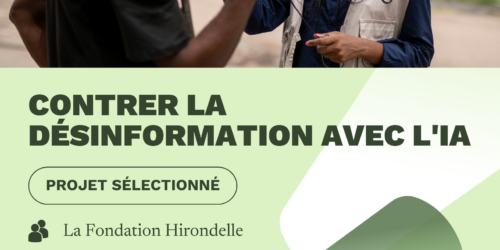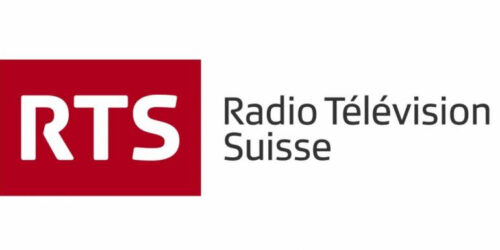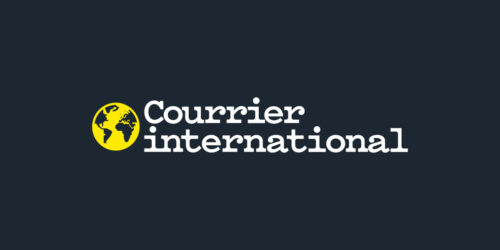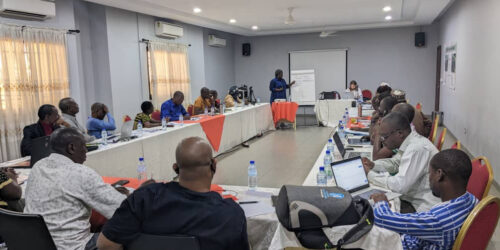In humanitarian crisis situations, information in and of itself is a vital need.
Professional media cover major security incidents and carry out fact checks to counter rumours.
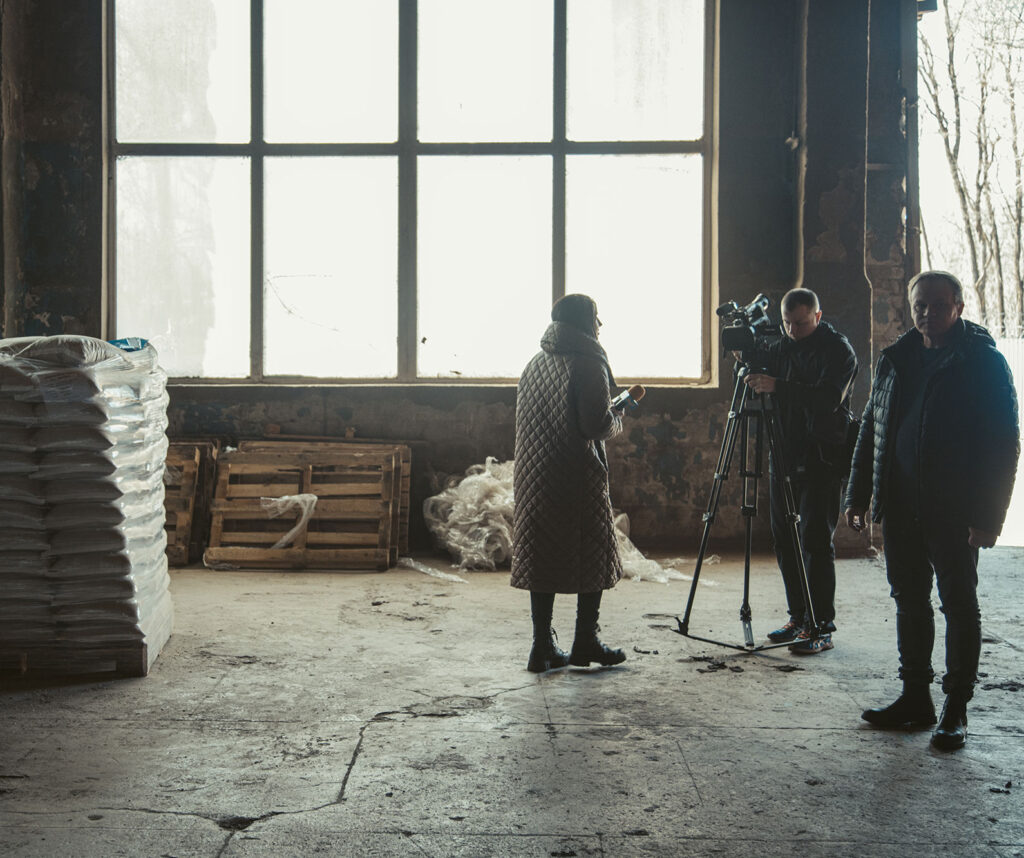
Fondation Hirondelle has more than 30 years of media experience in humanitarian crisis situations such as those currently ongoing in the Democratic Republic of Congo, the Central African Republic, Mali and Ukraine; and in the past in places including South Sudan, Liberia and Kosovo. We evaluate the media landscape and the information needs of the local population in order to rapidly provide appropriate and efficient support according to the evolving conditions of the crisis. Based on these evaluations, we provide support to general interest media in the country, or, alternatively, we create new media outlets. Our projects in humanitarian situations are based on the humanitarian-development-peace nexus approach.
Fondation Hirondelle can implement multimedia solutions from a local to global scale by supporting or creating radio stations, production studios linked to our networks of radio and TV partner stations, and dedicated websites; and by managing social media related to these.
Fondation Hirondelle interventions in humanitarian crisis situations take a twofold approach:
- Media as a response to the need for public service information:
We practice local journalism, producing and broadcasting public service messages in local languages to affected populations on topics such as food, health, displacement of populations, security, humanitarian justice and human rights.
- Media as a response to the need for dialogue and expression:
Interactive media programs that promote dialogue and give local populations a voice allow people to put their distress and needs into words, thereby helping to respond to psychological pain and reduce suffering. They also promote a bottom-up flow of information by giving affected people input into how humanitarian aid is provided, thereby strengthening their participation.
ExAmples OF MEDIA PROJECTS
Ukraine
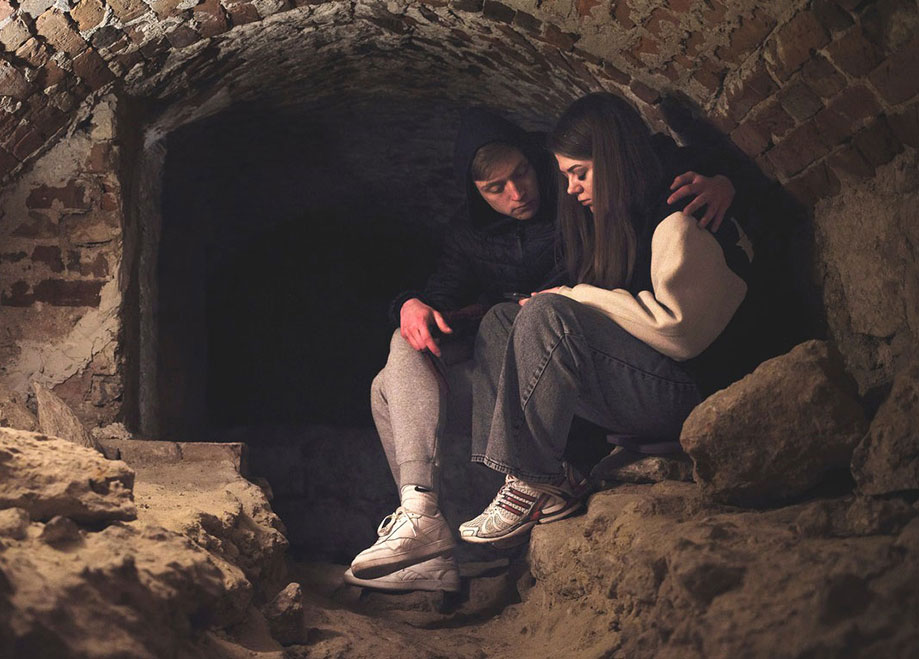
Since March 2022, Fondation Hirondelle and its local partner, the Institute for Regional Press and Information (IRMI), has been implementing a multidimensional project to support Ukrainian media. The goal is to provide people in the occupied territories and internally displaced people (in the east and south-east) with access to reliable information about public interest, humanitarian and social subjects, as well as content addressing war crime justice. The project also seeks to maintain media coverage of international human rights violations through Ukrainian journalists’ coverage of war crime trials, in particular of the most serious crimes.
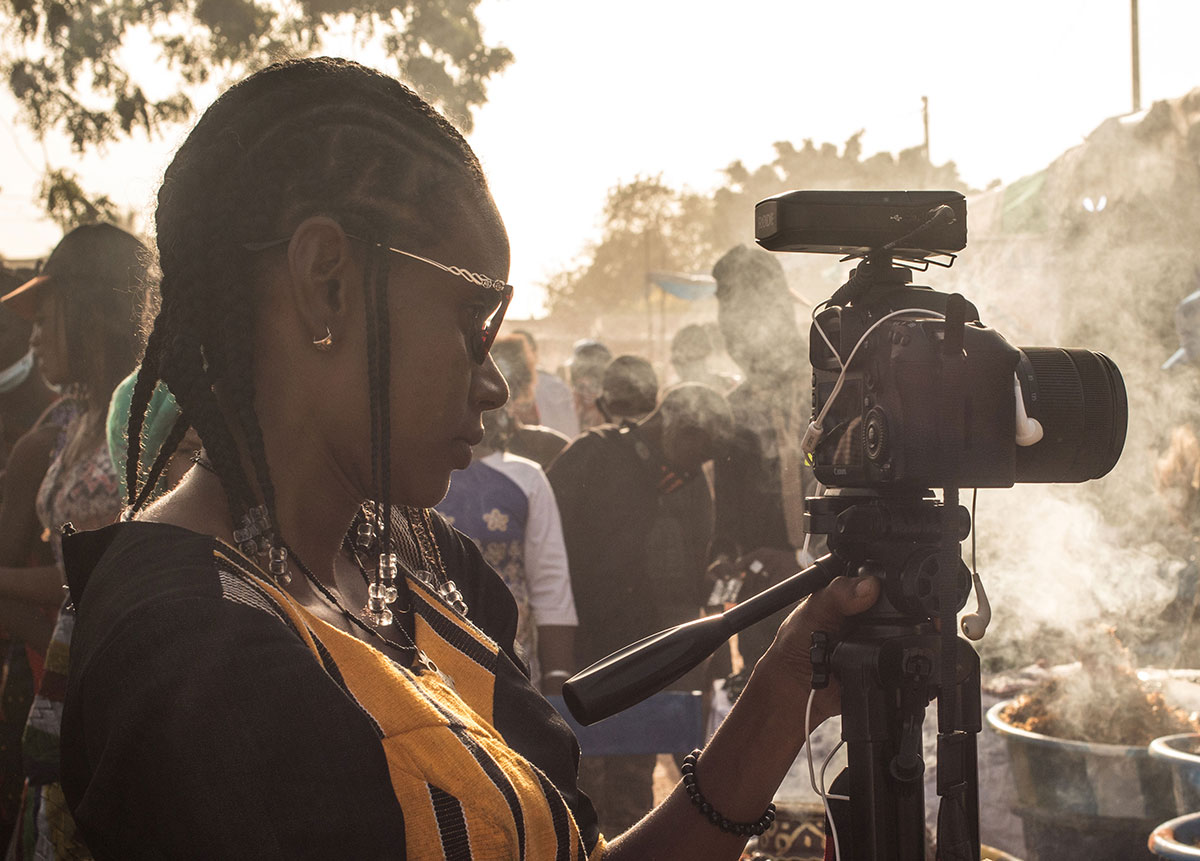
Mali
In 2024, around 7.1 million people, or 1 in 3 Malians, were in need of humanitarian aid and protection. In this complex situation, mis- and disinformation are rife. Studio Tamani is the country’s only independent media outlet with national coverage. The station has a network of 85 radio and TV stations, and is widely followed on social media and through its website. Since 2023, Studio Tamani has been broadcasting a 1/2-hour humanitarian current affairs programme twice a week in French and Bambara.
Learn more about the project
Central African Republic
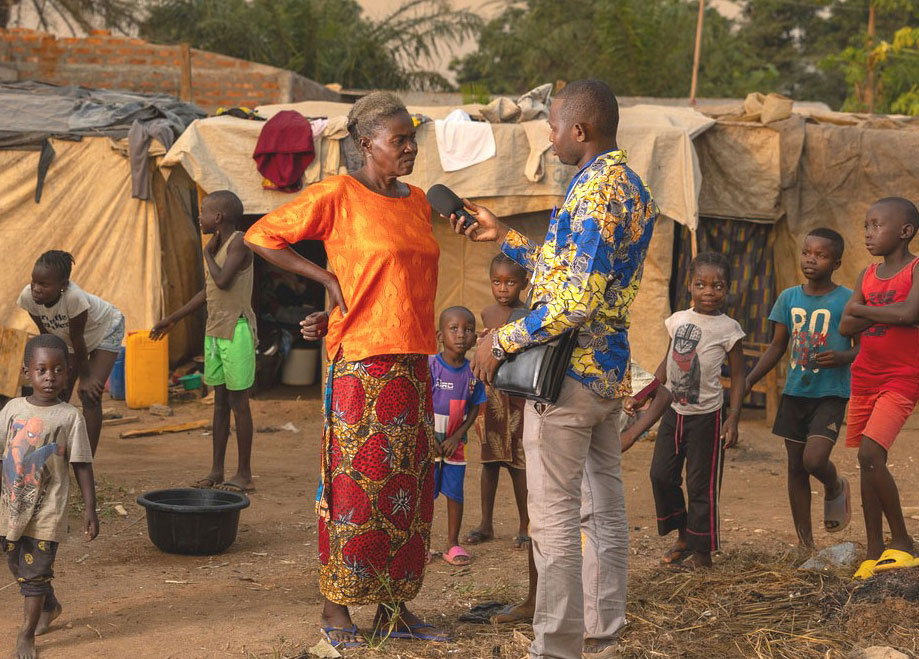
Created in 2000 by Fondation Hirondelle, Radio Ndeke Luka is the most listened-to radio station in the Central African Republic. With its team of around 100 people, the station produces and broadcasts a range of content including 13 daily news bulletins, debates, educational shows, entertainment, music and current affairs programmes. For almost 25 years, Radio Ndeke Luka has aimed to fulfil a public service function. Through its coverage and professionalism, it makes it possible to respond rapidly to humanitarian crises.
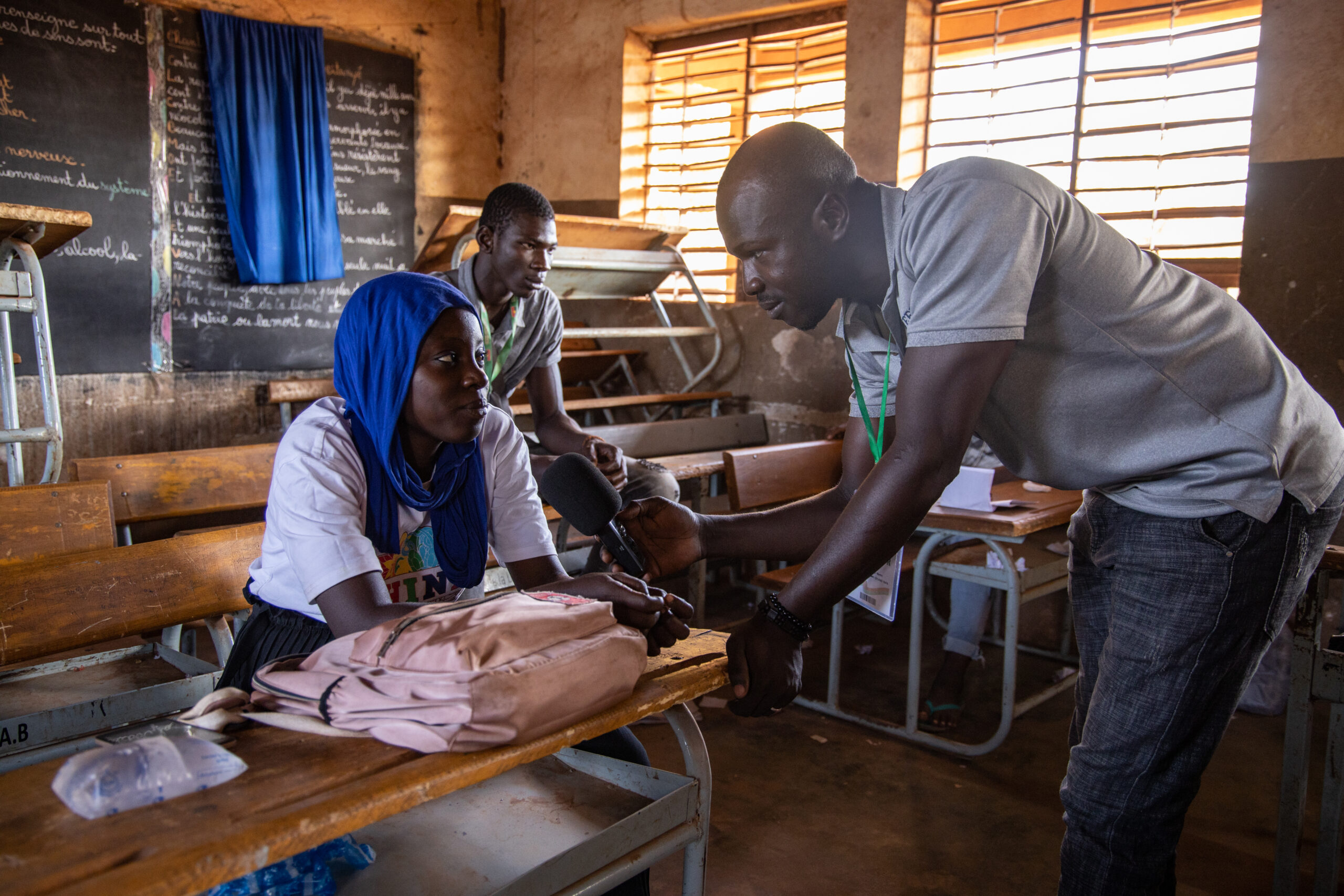
Burkina Faso
In 2023, the transitional government of Burkina Faso increased the defence budget to step up the fight against the threat of armed groups. The economic situation has worsened, with an inflation rate of 14.1%, the highest in West Africa. The country has fallen to 58th place in the Reporters Without Borders press freedom index. In this context, Studio Yafa wants to be at the heart of the daily lives of young people, women and vulnerable people, broadcasting series such as “Yafa celebrates women”, “Yafa at school”, “Yafa in the field”, including features such as “A reminder about dengue fever and measles”.
Voir le projet
REFERENCE Documents
Fondation Hirondelle regularly holds discussions with its partners on the role media can play in humanitarian crises. For the ICRC, we have developed a guide « Using Radio as a Means of Operational Communication and Community Outreach » and have also produced a reference document, “Humanitarian Crises: How Media Can Help“
Read the June 2020 issue of Mediation: “The vital role of journalism in times of crisis“

